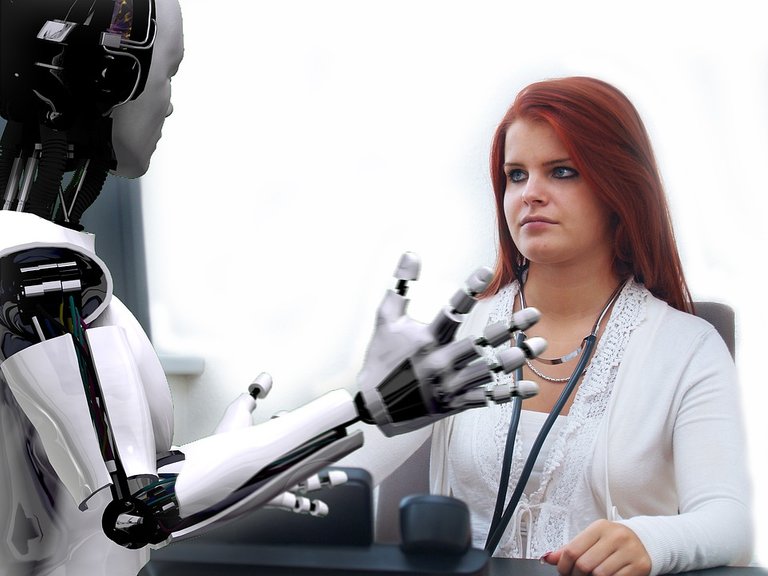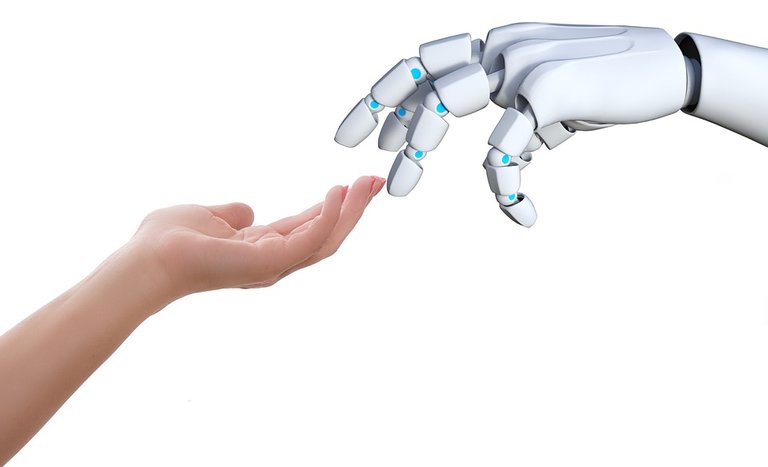Can Robots Lead Our Future Health Care?
There is an increasing population of aging and dementia in many countries around the world. Japan, in particular, is a "super-aging" society, whose population is increasingly older than anywhere else in the world due to long life expectancy and low birth rates.
A high-tech innovator, the country is producing robots for people with dementia - to provide companionship, improve security at home, and help with therapy. Other countries are jumping on board with the initiative to include service robots in dementia care.

Source
But we must ensure that people, especially those living with dementia, are firmly at the center of research and development. Technology, after all, should be for the people, not imposed on them.
Robots for Dementia Care
Robotic devices can help with physical care tasks, monitor behavior and symptoms, and provide cognitive support.
They can be classified into several types: power-assisted robots that move patients from beds and wheelchairs; Assistive robots for personal mobility; Toiletry aid robot; Bath aid robot; Monitoring robots with sensor systems; Social interaction robot; And therapeutic robots.
Assistive , robots could be widely used in aged care assisting elders with physical mobility limitations.
The latter categories have particular application to people with dementia who experience difficulty with memory, thinking, and communication, as well as changes in mood, behavior, and personality.
Social robot
For people living with memory loss, robots can remind them of things they often forget, such as prompting them to take drugs and eat food, pinpoint the location of household items and their Helping with usage. Robots can also provide companionship and entertainment, such as involving people in games, dancing and singing.
Robots can help people with dementia live independently, and can help reduce negative behavior and psychological symptoms.
They can support human carers by providing attentive eyes and helping hands. Robots do not experience tension and irritation and have other practical benefits. Robots that look like padded animals can be used in place of real animals for pet therapy. For example, a robot cat does not require food, water or a litter box and will not scratch if it is squeezed too hard.
The benefits of robots seem compelling, but also downside. Especially when there are potential conflicts between the interests of dementia and the people who care for them.
Caregivers need support and relief, but replacing human care with technology can deprive people of social engagement and worsen loneliness and isolation problems. What's more, relying on robots to perform home and self-care tasks can reduce older adults' autonomy.
In fact, there is a fine line between using robots for beneficial therapy and infecting older people, when robots are used as toy-like dolls or teddy bears. New technologies should help people retain or develop skills and honor their life experience. For example, a communication robot can help record a life diary with a person and remind them of important events and relationships.
Issues of consent and confidentiality arise if a person is unable to turn off monitoring and data tracking facilities. Older people may prefer "age in place" in a home and community where they feel attached. Thoughtful caregivers often want to reduce the risk of harm, especially for the elderly living on their own, but intrusive techniques can make a home feel like a hospital or prison.
And technologies that draw attention to disabilities and deficits can make people feel self-conscious and tarnished. The way they are designed and promoted in society, robots can eliminate stereotypes that trouble older people.
User-centric research and design
It is important to understand the opinions and preferences of older adults and people with conditions such as dementia. Technology developers are sometimes criticized for their enthusiasm for robots and other high-tech novels, and for a mismatch between the preferences of people living with dementia.
A recent review on the ethics of social and ancillary robotics for dementia care points to a vicious cycle: new products will have less uptake when the user does not have to drive the development of technology.
Most important, finite research resources should be spent wisely, with meaningful participation from those who are intended to benefit from new treatments and products.
Engaging citizens in science and research
There is increasing enthusiasm for promoting "democratization" science and civic participation and participation in research. The Japanese Science and Technology Plan, for example, calls for "government, education, industry and citizens" to work together on major challenges, including the country's super-aging population.
And there are important critiques of what participation in civic care really is in health care and technology development. But elderly members of society and people with dementia-like conditions should not be sidelined.
There are ethical and practical complications in including people with dementia in research, but they should not be automatically excluded. Supportive strategies can maximize the ability of people with cognitive impairment to be a voice for them.
Perhaps communication robots may one day help people express their views on being the robot in their lives. What are your thoughts, please comment.
Thanks for being with me, Have a nice day.




This post has received a 53.15 % upvote from @boomerang.
You got a 22.22% upvote from @joeparys! Thank you for your support of our services. To continue your support, please follow and delegate Steem power to @joeparys for daily steem and steem dollar payouts!
Defended (33.33%)
Summoned by @andyson
Sneaky Ninja supports @youarehope and @tarc with a percentage of all bids.
Everything You Need To Know About Sneaky Ninja
woosh
You got a 83.33% upvote from @minnowvotes courtesy of @andyson!
Downvoted for bid bot abuse. @steemflagrewards
Try engaging with more people to build your following instead. Rewards should be earned.
Steem Flag Rewards mention comment has been approved for SFR Token Issuance!
Tokens will be transferrred when the flagged content reaches payout.
Thank you for reporting this abuse, @steevc.
You bought votes to increase the rewards of your post above the value of its content.
This post was submitted via our Discord Community channel. Check us out on the following link!
SFR Discord
This post earned a total payout of 4.475$ and 3.365$ worth of author reward which was liquified using @likwid. To learn more.